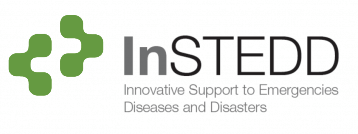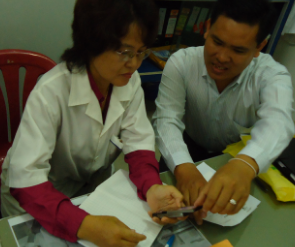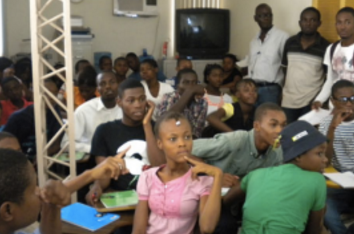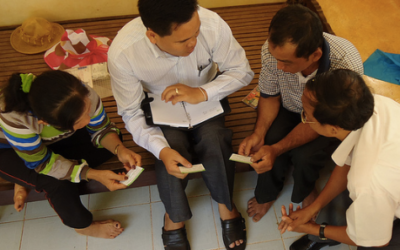An SMS To Contain Tuberculosis
To answer the request of Family Health International (FHI) to promote earlier tuberculosis case detection, iLab Southeast Asia (iLab SEA), located in Phnom Penh, is designing a step by step TB Lab Result Alert System. It aims to offer early detection of tuberculosis in rural and remote villages in Kampong Cham province and to accelerate patient access to care. Leveraging mobile technology (SMS), this system is involved in the containment of tuberculosis.
Marie Stopes International + Verboice: Will Mobile Phones Improve Contraceptive Use in Cambodia?
Using Verboice, Marie Stopes International Cambodia is piloting a project called Mobile Technology for Improved Family Planning services. MOTIF is a pilot project focused on developing, testing and evaluating a mobile phone-based intervention to support the use of post-abortion contraception. The goal of the project is to answer the question: does a post-abortion family planning (PAFP) mobile phone-based intervention increase use of contraception in Cambodia?
Interactive Voice Response System Empowering Cambodians
Through funding from the SPIDER network, InSTEDD’s iLab Southeast Asia began the project to assist the Women’s Media Centre (WMC), Open Institute (OI) and other partners in Cambodia in implementing a series of mobile-based information lines, scheduling advice systems and question boxes for women and children that complement and extend the reach of their current mass media projects.
iLab Latin America + UNICEF Map Social Risks in Haiti
Building on the success of the digital mapping project in Brazil, our iLab Latin America applied the same concept to problem solving in Haiti. While our work in Brazil revolved around the surveying of potential social and environmental dangers, the work in Haiti focused on detecting risk factors associated with HIV/AIDS, sexually transmitted diseases, sexual and reproductive health, and gender violence.
Verboice in Cambodia: Using the Power of Voice for Social Impact
Voice is the most universal and inclusive means of communication, and it’s an ideal way to expand the reach and impact of health and humanitarian technologies. In September 2012, with funding from Spider (The Swedish Program for ICT in Developing Regions), the InSTEDD iLab Southeast Asia introduced and extended Verboice, an open-source tool which specializes in using interactive voice response (IVR) to support health, safety and sustainable development work. Verboice projects can start small and scale up, making it possible to improve lives even in communities previously closed off by literacy and technological barriers.
TB Technology in Kenya in 3 Steps
InSTEDD and its partners at Kijani, Population Council, and AMPATH-Kenya are working to design, develop, implement, and evaluate information and communication technologies to improve TB care among people living with HIV. As an initial phase of this project, our team is focused on a TB care reminder system. This reminder system uses information from patient electronic medical records (OpenMRS) to give medical providers the right reminders at the right time about what they can do during each patient visit to improve TB diagnosis and prevention among their patients.
Barcamp Yangon 2013: A Personal Experience
Last month, my colleague at the iLab Southeast Asia and I were fortunate enough to attend BarCamp Yangon. This was my second time participating in the event focused on spreading ICT knowledge throughout the country. As part of the international network of BarCamp conferences
Help Shape our Internship Program
As with all of our activities, we begin with an open mind and proceed with an agile and human centered design process. We believe the most effective programs and technologies are flexible and iterative and are built on joint participation of the communities they are meant to serve. Whether we’re building tools or creating an internship program, our experience has taught us there there is not a one-size-fits-all model for success.
2012: A Year in Review
In the wake of the New Year, we took some time to look back on the dynamic journey we took in 2012. Our activities were characterized by contributions to key global health efforts, engagement in several new projects and the development of important strategic partnerships. Our iLab Southeast Asia and iLab Latin America continued to develop their teams and capabilities as a regional leader for collaborative problem solving. We are delighted to share some of our remarkable achievements of 2012.




